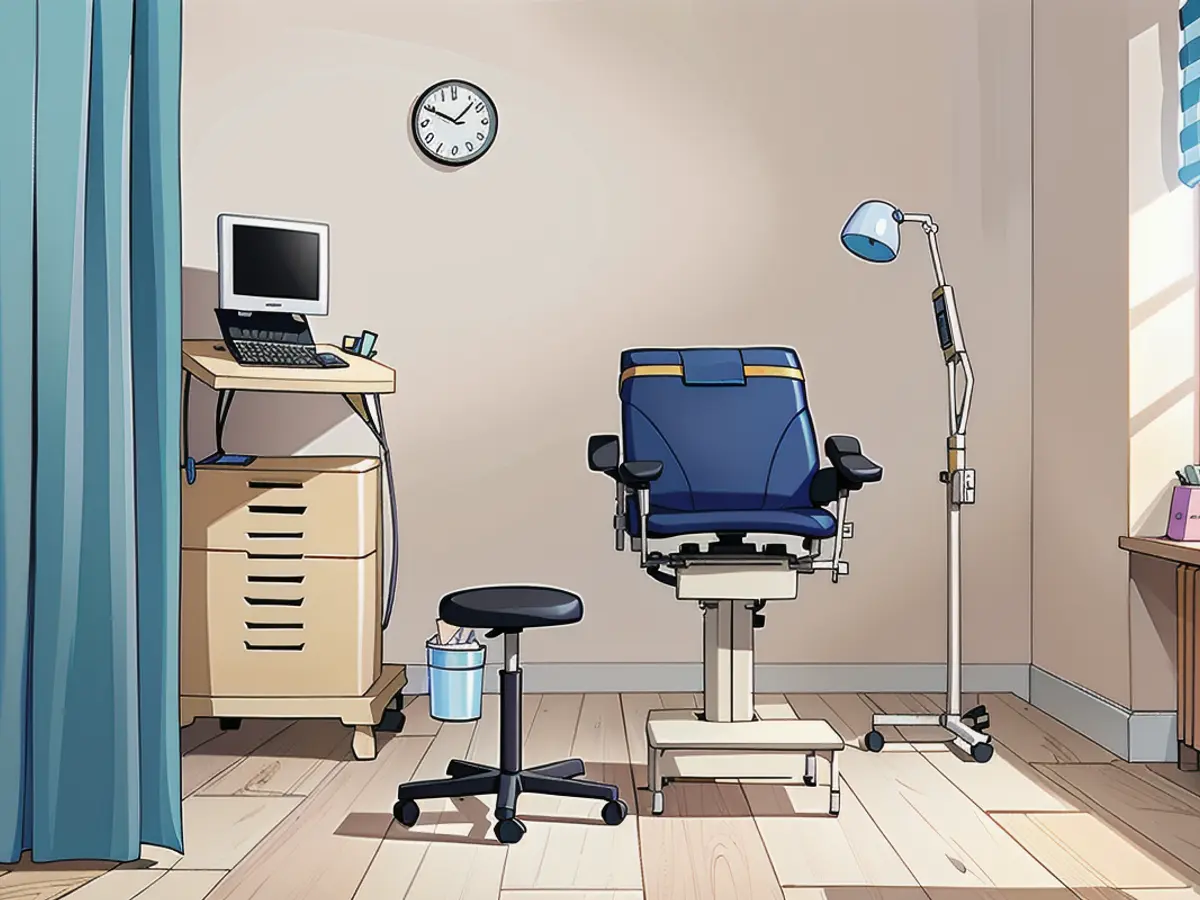The FDA approves self-collected vaginal samples for cervical cancer screenings.
Two healthcare companies, Roche and medical technology firm BD, revealed on Wednesday that the US Food and Drug Administration (FDA) has approved the use of self-collected samples with their respective Human Papillomavirus (HPV) tests.
HPV is a common cause of cervical cancers, and HPV screening helps identify women who may be at risk of developing the disease. Dr. Karen E. Knudsen, CEO of the American Cancer Society, stated, "Almost all cervical cancers are caused by persistent infection with certain types of HPV. Self-collection can expand access to screening and reduces barriers, giving more people the opportunity to detect, treat, and ultimately survive cancer."
In the past, gynecologists have been the ones to collect samples for HPV testing, or cervical cytology, a process that involves examining cervical cells for changes to find precancerous or cancerous cells. The US Preventive Services Task Force (USPSTF) recommends cervical cancer screening every three years for women aged 21 to 29, and either every three years with cervical cytology only, every five years with high-risk HPV testing only, or every five years with high-risk HPV testing in combination with cytology for women aged 30 to 65.
However, some patients may feel uncomfortable having their provider collect samples, as it can be painful or awkward. Dr. Jeff Andrews, a board-certified gynecologist and vice president of global medical affairs for diagnostic solutions at BD, mentioned in the company's announcement, "Many patients are uncomfortable with the intimate nature of a pelvic exam. Also, many people live in areas without a local doctor or clinician trained to obtain a sample with a speculum. The option to self-collect in a clinical setting can help women overcome some of these barriers."
BD is now FDA-approved to use its BD Onclarity HPV Assay for HPV testing on self-collected samples without requiring a traditional Pap test. BD is also participating in a trial with the National Cancer Institute that is expected to begin enrolling this summer to evaluate the accuracy of self-collection for HPV testing in various settings, including at home. Roche announced that HPV self-collection has been approved for use with its cobas HPV test, and has also collaborated with the National Cancer Institute.
According to the Centers for Disease Control and Prevention (CDC), more than 11,000 cases of cervical cancer are diagnosed in the US every year, and roughly 4,000 women die of the disease. While some cases may be found in individuals who have never been screened or received a Pap test within the past five years, regular HPV screening can help prevent many cases of cervical cancer.
Dr. William Dahut, chief scientific officer at the American Cancer Society, said in a statement, "Despite the benefits of cervical cancer screening, not all women and people with a cervix get screened regularly. Most cervical cancers are found in individuals who have never had a cervical cancer screening test or who have not had one recently. That's why adding self-collection in a healthcare setting as a screening method for this potentially deadly disease can make a huge impact. We anticipate self-collection in a healthcare setting will play an increasingly prominent role in cervical cancer screening once regulatory and clinical prerequisites are in place and as supporting evidence continues to accumulate."
The FDA may consider approving the self-collection method at home instead of just in a healthcare setting. Teal Health has developed a home cervical cancer screening device called the Teal Wand, which was granted "breakthrough device" status this month by the FDA.
Trena Depel, vice president of clinical and regulatory at Teal Health, said in a news release, "FDA's recognition of the Teal Wand as a Breakthrough device acknowledges the important public health benefit that self-collection for cervical cancer screening can have on those who are rarely screened or who do not participate in clinician-based screening for cervical cancer."
To prevent cervical cancer, individuals can also take steps such as getting vaccinated against HPV, not smoking, using condoms during sexual intercourse, and attending regular screening tests. Early cases of cervical cancer often have no symptoms, while more advanced cases may cause abnormal vaginal bleeding or unusual discharge. Treatment options for cervical cancer include surgery, chemotherapy, and radiation therapy.
These self-collection methods announced by BD and Roche are significant steps towards increasing accessibility and reducing anxiety for women undergoing screening, potentially leading to earlier detection and higher survival rates. The FDA's decision to consider approving self-collection for home use may further enhance these benefits.
Cervical cancer screening remains critical since early detection is key to successful treatment and fewer symptoms. Women should consult their healthcare providers about the most suitable screening option for their unique needs. By focusing on preventive efforts and promoting regular screenings, we can work towards reducing the incidence and fatality rates of cervical cancer.
Read also:
- No food or coffee for three days, just juice, juice, juice instead: a field report
- How to get rid of the flu if you have caught it
- Doctors warn of penis fractures and other injuries during the Christmas season
- Corona or flu epidemic? These pathogens are making us cough and sniffle right now
Self-collected samples are now approved for use with BD's BD Onclarity HPV Assay for HPV testing, allowing patients to overcome discomfort or lack of accessible healthcare providers. Roche's cobas HPV test has also been approved for HPV self-collection.
Source: edition.cnn.com








